Sears is pretty desperate for that stimulus check money. They’re offering a 10% bonus to anyone who converts their stimulus check into a Sears Gift Card.
economics

Wal-Mart's Katrina Heroism: "Above All, Do The Right Thing," CEO Told Managers Before Katrina Struck
A paper written by Steven Horwitz, an Austrian-school economist (we’re still not quite sure what that means, other than it’s considered slightly controversial), recounts Wal-Mart’s relief efforts after Hurricane Katrina (PDF) and points out that private businesses, along with the Coast Guard, did far more than any “official” government agency in providing immediate, on-the-ground assistance to victims. His argument is that something as complex as a relief effort is more efficient when it’s decentralized and involves private businesses. Horwitz has also, separately, supported the idea that Wal-Mart should win the Nobel Peace Price. Hey, we told you his school of economics was controversial.
../../../..//2008/03/19/freakonomics-looks-at-an-economist/
Freakonomics looks at an economist and his experiences applying his knowledge to parenting. [Freakonomics]
../../../..//2008/03/07/the-freakonomics-blog-says-were/
The Freakonomics blog says we’re in a recession. Who the hell are we to argue? [Freakonomics]

Consumer Confidence Plunges
Y’all really don’t have good feelings about the economy, according to the Consumer Confidence Index which dropped to 75 this month from 87.3 in January. That’s the lowest it’s been since the 64.8 of Feb ’03, just before the US invaded Iraq. Furthemore, the “expectations for th next six months index” dropped to 57.9 from 69.3 in January. It might be a good time to start eating less so your stomach shrinks in preparation for the lean times.
../../../..//2008/01/21/the-average-age-of-new/
The average age of new car buyers in January 2007 was 43. In January 2008, it was 48. This suggests that as the economy tightens, younger car buyers are staying out of the new car market. [Kicking Tires]
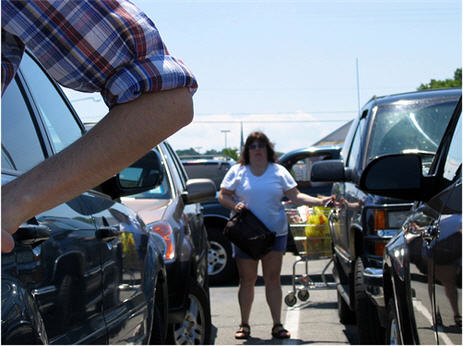
Consumer Spending May Actually Be Dropping
There are mounting anecdotal signs that beginning in December Americans cut back significantly on personal consumption, which accounts for 70 percent of the economy.
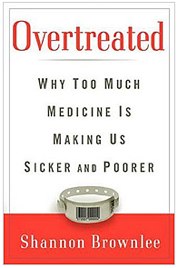
"Overtreated" Says Too Much Healthcare Is Bad For Us
The general theme of the book “Overtreated,” the New York Times’ pick for best economics book of the year, is that we can cut a significant percentage of our health care costs—”between one fifth and one third,” says the author—and not have any impact on our level of health. As a nation, we tend to err on the side of too much treatment, exposing ourselves to unnecessary risks and racking up fees on procedures we could do without. And since doctors depend on a piecemeal approach to earning income, while at the same time dealing with significant financial risks from malpractice suits, they tend to push for more treatment, not less (they need to earn a living while also protecting themselves from accusations of doing too little).
../../../..//2007/12/13/retail-sales-went-up-12/
Retail sales went up 1.2% in November. Economists had predicted only a .6% increase. [AP]
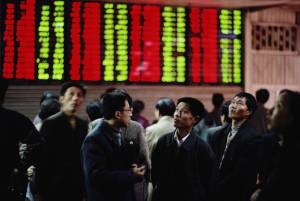
The Truth About Chinese-U.S. Trade
With all the hoopla in the media about all things Chinese—exports, Chinese investors in the United States, the U.S. trade deficit with China, and so on—we thought this myth-exploding article was worth the read. It’s aimed at investors, but relevant to anyone interested in the U.S. economy and how our relationship with China really works. For example, the U.S.’s foreign direct investment (FDI) in China so far this decade is only a third of what we’ve put into Ireland and Germany.
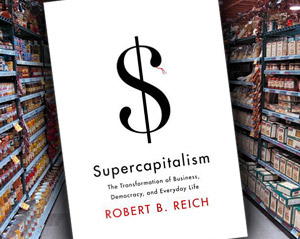
Robert Reich Talks About His Book "Supercapitalism"
Apparently “Supercapitalism” is making the rounds over at AlterNet, because they keep writing about it. This time there’s a good interview with the author, former labor secretary Robert Reich, and he takes the opportunity to summarize his main arguments from the book.
../../../..//2007/11/27/the-fed-infuses-money-supply/
The Fed infuses money supply to banks with $8 billion. Come on boys, we know you can avoid a recession, put your nose to the grindstone and win one for the Gipper! [NYT]
../../../..//2007/11/20/there-was-a-live-turkey/
There was a live turkey trade deficit of $4.9 million for the first half of this year. But we had a $9.4 million surplus of cranberries, and $15.3 million of sweet potatoes. [WSJ]

What The Fed's Rate Cut Means For You
The Fed’s recent quarter-point rate cut could either mean more or less cash in your pocket, depending on what you accounts you own. Here is the breakdown:
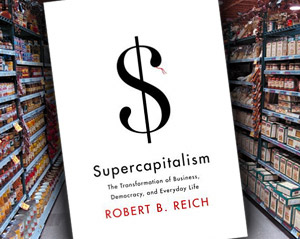
Do We Need "Separation Of Store And State"?
Earlier this month we asked our readers, are you a consumer or a citizen? It was sparked by comments from Robert B. Reich, who’s written a book called “Supercapitalism” that argues that we as consumers are in effect our own worst enemies—our collective desire to save a buck or earn more on our investments are contributing to the increasing “decline of democracy.” AlterNet has posted an excerpt from his book that expands on this idea of how we undermine our own best interests with, well, our other best interests.
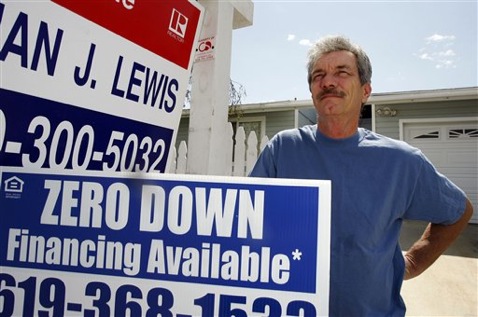
The Optimal Mortgage For The Rational Borrower
Two professors have released a paper branding adjustable rate mortgages, which are responsible for the subprime meltdown, as the optimal mortgage type for rational borrowers. As we know all too well, few borrowers are antiseptically rational. According to Columbia professor Tomasz Piskorski and NYU professor Alexei Tchistyi, ARMs hold several unrivaled advantages:

How The Fed Rate Cut Affects You
The Fed cut interest rates Monday, but what does this mean for your wallet?

Consumer Confidence, Home Prices Take A Nosedive
It was only a few short weeks ago that the media was reporting a new 6 year high in consumer confidence. We wanted to buy tacos. And jetskis. And footballs.


